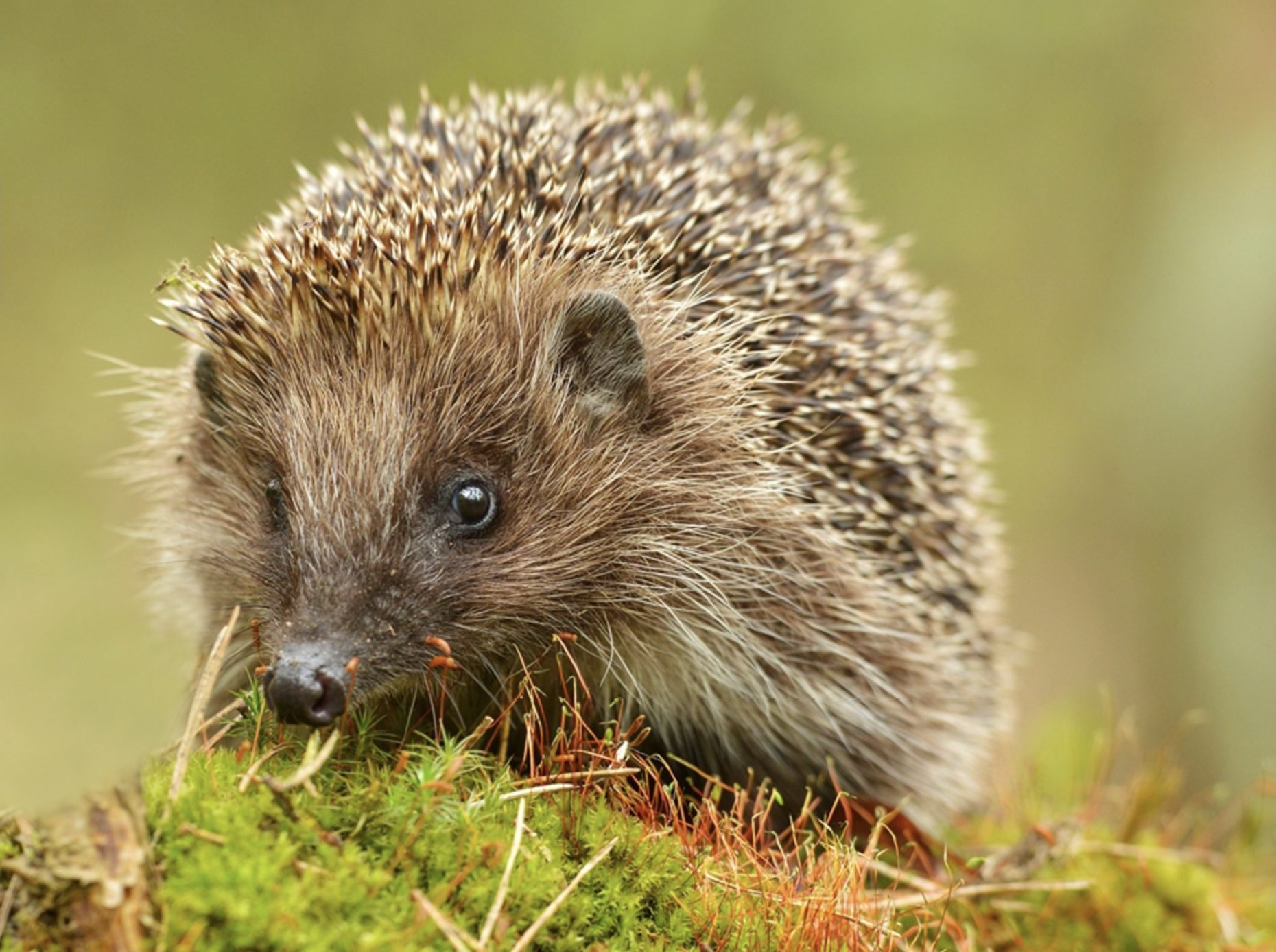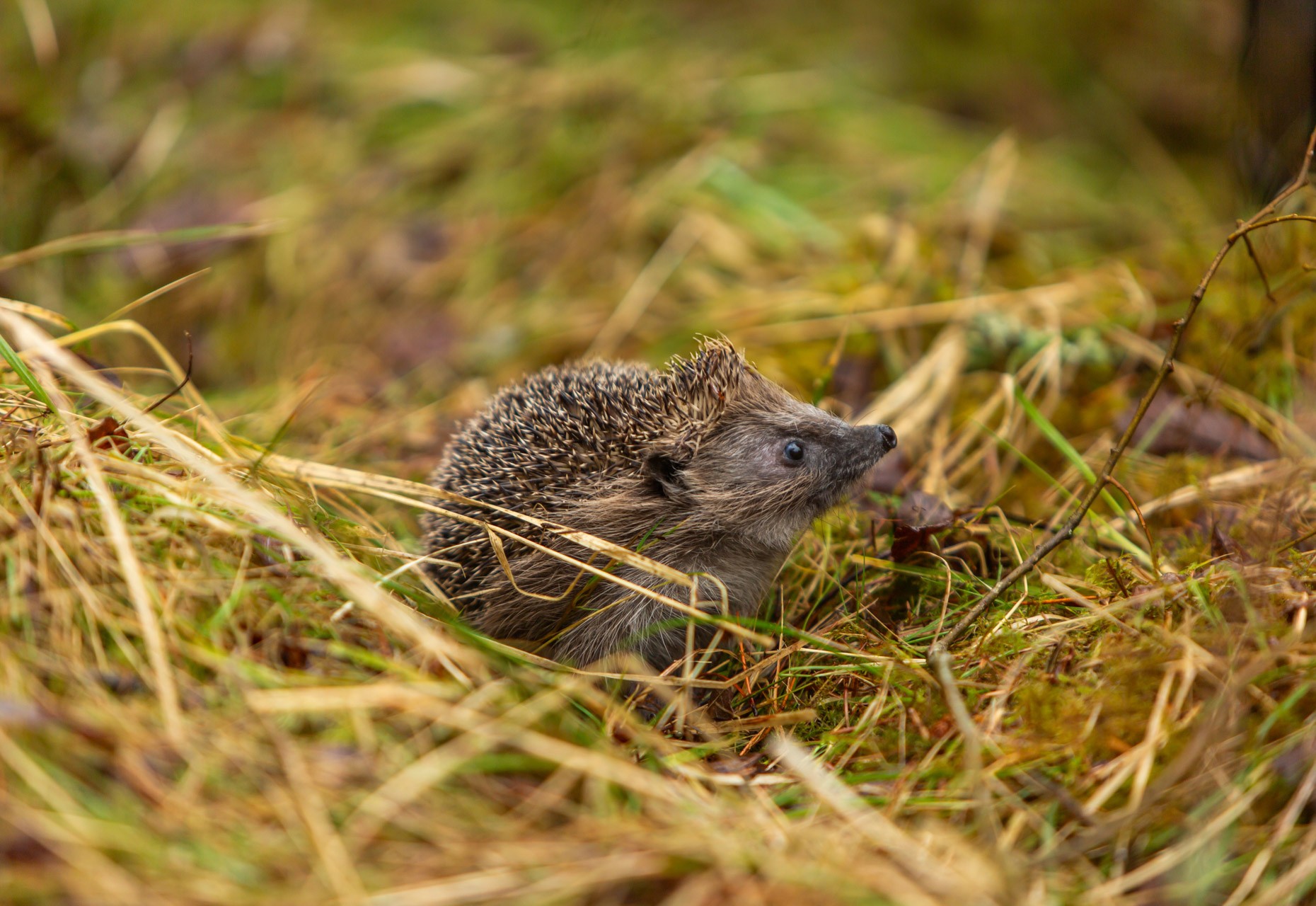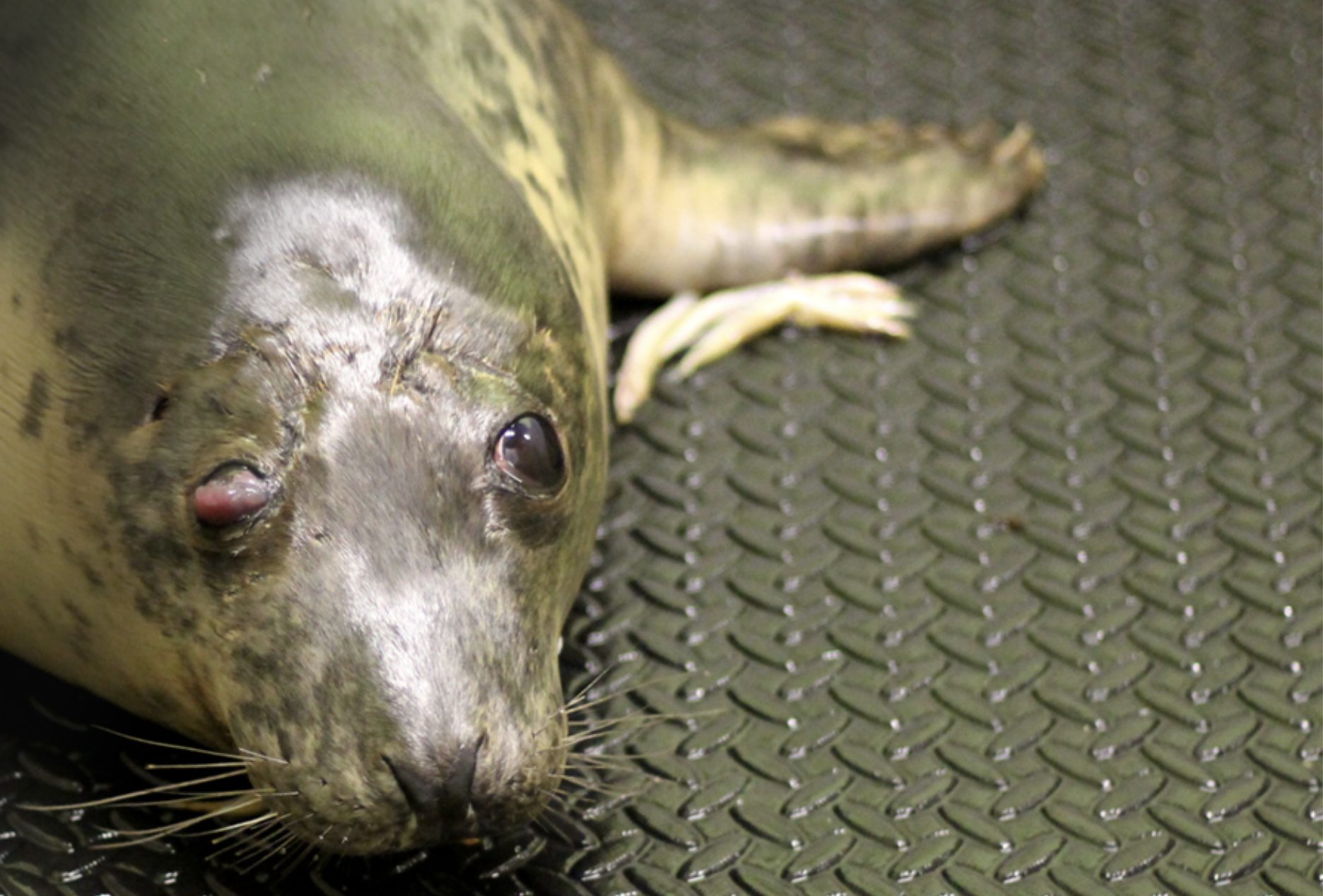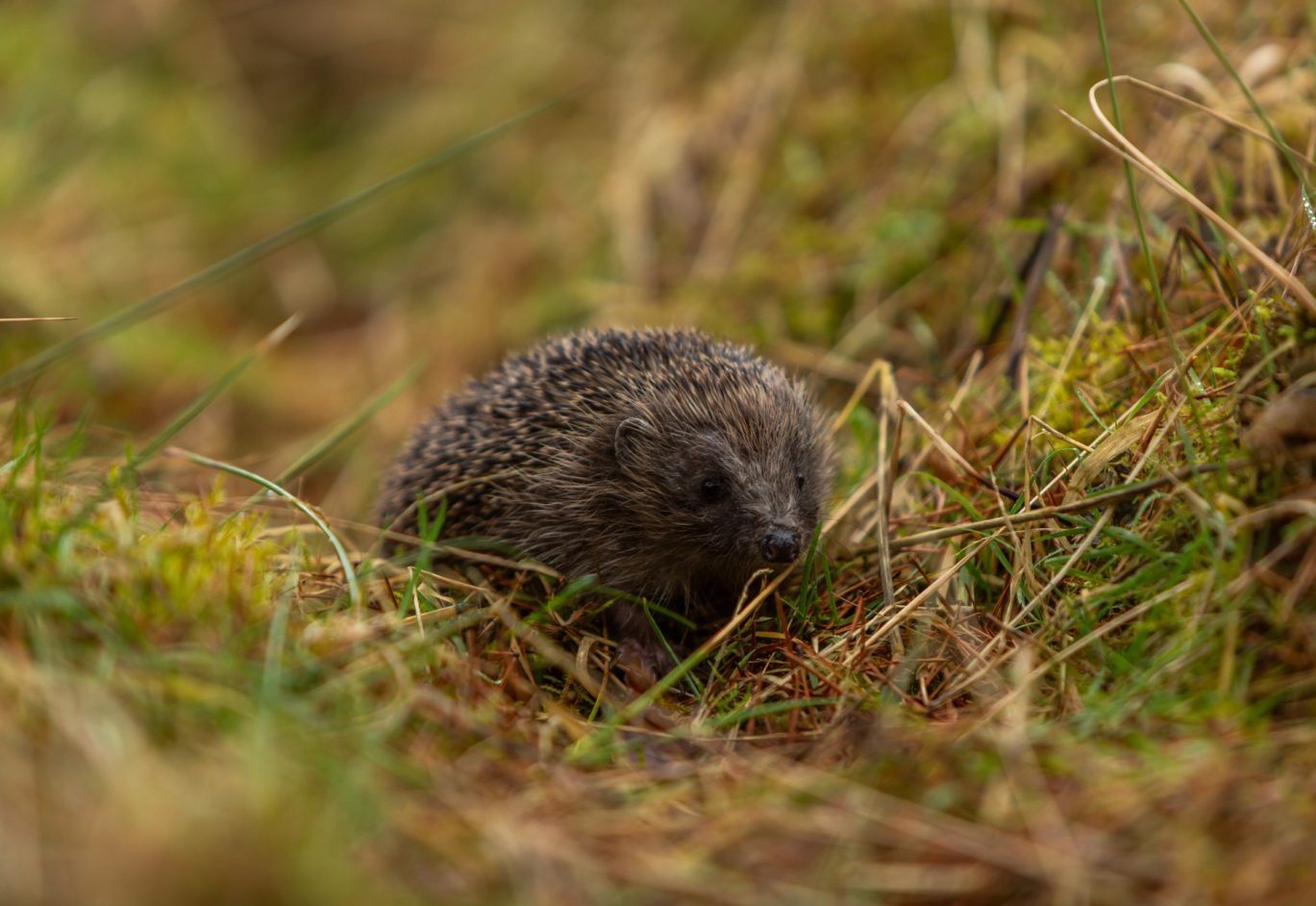
What do hedgehogs eat?
Everything you need to know about what you can and can’t feed your prickly garden visitors.
Our prickly friends usually hunt for themselves but during dry or cold periods they can struggle to find food. Alongside this, the increased use of pesticides in woodland and parks have limited insect activity, reducing meal options for hedgehogs. This is where you come in. By learning all about supplementary feeding you can give these friendly garden visitors the best chance to live on happily and with full tummies.
What do hedgehogs usually eat?
Hedgehogs often eat creepy crawlies such as earwigs, earthworms, beetles, and caterpillars – snuffling through undergrowth and using their keen sense of smell to find their dinner. However, during dry and cold periods, these insects are not as readily available which leaves hedgehogs stuck and starving.
What to feed hedgehogs
Although these prickly characters are usually shy in our presence, they will consume food that’s left out for them.
Supplementary feeding gives hedgehogs a chance to eat when their usual meal proves difficult to hunt.
The best food that you can leave out for hedgehogs is meat-based cat or dog food, specially made hedgehog food from a wildlife retailer, or crushed up cat biscuits. ‘Human food’ will upset their tummies and make a mess in your garden.
When to feed hedgehogs
You can leave food out for hedgehogs all year round. In spring, it helps them when emerging from hibernation and in autumn and winter, it helps them build up fat reserves to survive the colder months. Despite popular belief, hibernation isn’t a constant state, so by offering food on mild nights during the winter period, you will ensure our sleepy friends have food available if they wake up prematurely in search of snacks.
Don’t forget to leave out water for them too, especially in the warmer summer months.
A small act of kindness
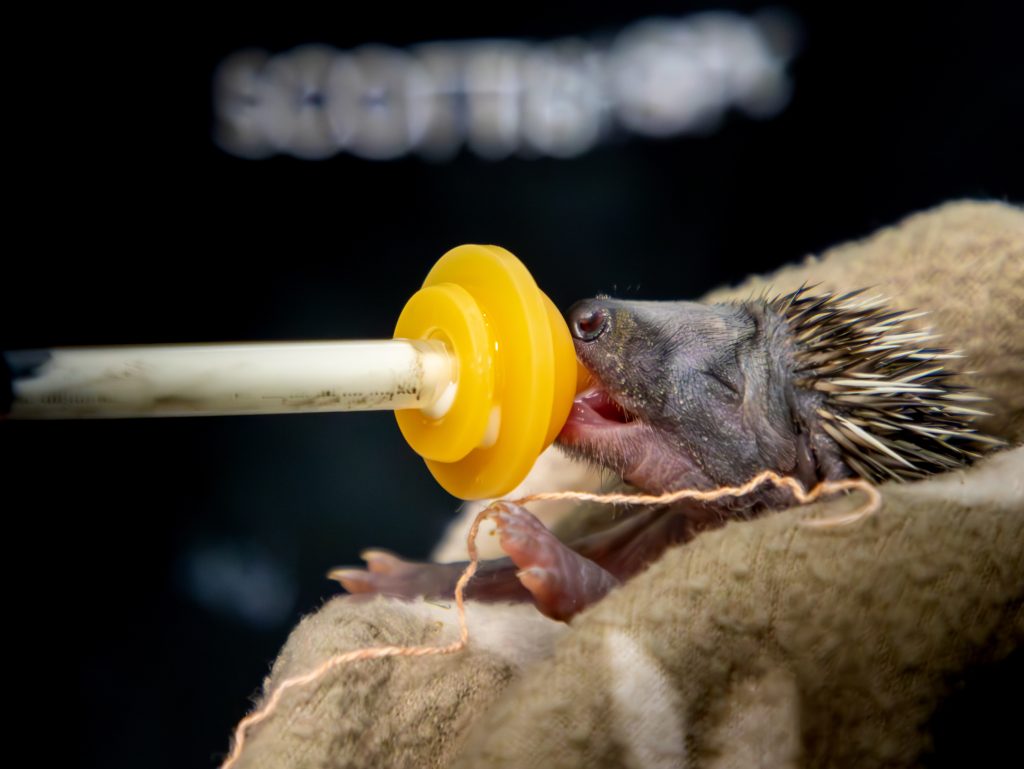
A small give can make the world of difference to the many wild animals rehabilitating in our care. A tiny hedgehog, an injured owl, or an orphaned fox cub – through donations, we can help them all.
How to feed hedgehogs
The best way to ensure that these hungry hogs have their daily meal is by setting up a feeding station. A feeding station is a shelter with a small entrance and a tunnel or a sharp angle that prevents cats or foxes from stealing the food.
What not to feed hedgehogs
As hungry as hedgehogs can be, there are a couple of things to avoid giving them. Although they’re an insect, mealworms can cause health problems when eaten in large quantities so it’s best to avoid them. Also avoid giving out bread as this is low in energy and has no nutritional value.
Another common misconception when feeding hedgehogs is giving them milk. Hedgehogs are actually lactose intolerant so putting milk out for them will give them diarrhoea.
What to do if you have a cat or a dog
Although our four-legged, furry friends love us, they don’t usually love hedgehogs.
Cats often leave hedgehogs alone after they’ve investigated, however, if the hedgehog’s dinner is left uncovered, your cat will probably get to it first. See above on how to feed hedgehogs.
Dogs can be a bit livelier around hedgehogs, attacking or wanting to play with them so try to keep them away from your prickly visitors, especially at night when they’re more likely to be out and looking for food.
What else to do to help
To help hedgehogs’ food supply all year round there are a few things you can do to encourage minibeasts in your garden. Building a pond, log pile, or compost heap can have both benefits for your garden and help attract creepy crawlies for hungry hogs to hunt.
You can also help by washing your food and water bowls regularly (outside, not in your kitchen) as this will help prevent spreading disease between different hedgehogs eating out of the same bowl.
And there you have it – happy, healthy hedgehogs
We hope this advice helps for future run-ins with these hungry visitors. You could give them even more support by donating to the Scottish SPCA as we help rescue injured or underweight hedgehogs, and provide food and shelter.
Please consider giving a one-off donation today and help us give hedgehogs a safer future.

Support us from £5 a month
It costs us £63,000 every day to continue the work that animals across Scotland depend on. Our work is only possible because of the generosity of people like you.



